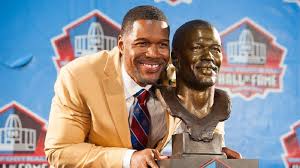
“He who tends the fig tree will eat its fruit, And he who cares for his master will be honored.” – King Solomon (Proverbs 27:18)
I read an article on CBS News Money Watch about the Top 40 Bonehead Bosses. There you can read the accounts of some the most boneheaded bosses you can imagine. Here’s one just for fun:
I worked as a secretary for a large metropolitan hospital. My son was in daycare at a local church. One day a co-worker ran into the office and screamed: “the church is on fire, the church is on fire”. Immediately, I ran to the church, where I could see the smoke, the fire, four fire engines and people everywhere. I was in a panic. I lost my shoe, tore my dress and dropped my purse looking for my son. After finding him (Thank God!), I returned to work frazzled and disheveled. When I made it back to my desk, my Boss approached me and said “You left your station without permission. You will be disciplined for this!”
Boneheaded boss? I’d say so. And this highlights the age old love/hate relationship people have with their bosses. As a leadership speaker, I hear the stories. And I hear the stories from the bosses about their employees because that relationship cuts both ways.
In his book, Creative Followership, Jimmy Collins, the former COO of Chick-fil-A, outlines his powerful followership principles. Principle 12 states: Let others see the boss in you.
In explaining Principle 12, the underlying philosophy he says, “was to present unified purpose and action. When the people in the organization see management in unity, they are more confident in their own roles.” Creating a compelling vision and mission statement is only as powerful as the people’s ability to have buy-in it and execute it.
Elaborating more, Collins says, “Your work should mirror the quality and character of the boss. Do things in a manner that will meet and even exceed your leader’s personal standard.”
These timely principles are as important now as they have ever been. So let me ask you:, do your colleagues, customers, and clients see the boss in you? Do people see in you an accurate reflection and representation of your organization’s core values and beliefs? Do you back it up with your words, actions, and ethics? As you reflect on these questions, here are a few important reminders for your consideration.
You are the face of your organization
Don’t make the mistake of believing that it’s only your boss who is the face of your organization. Regardless of where you are in your organizational structure, if you are on the payroll, you are the face of your organization. If you can’t proudly be the face of your organization then it’s time to either change your attitude or change your address.
You are an extension of your boss
As an extension of your boss, you carry a great deal of responsibility on your shoulders. How can you rightfully be an extension of your boss if you do not respect your boss? How can you passionately represent your organization in public if you are undermining it in private? As an extension of your boss, make it a priority to develop trust and be in unity with him or her. Develop your consensus in private, articulate your unity in public.
You are part of the ‘why’
Simon Sinek says, “People don’t buy what you do, they buy why you do it.” It’s a simple and yet very profound statement. Think about the implications of it for just a moment. You are the reason why customers keep coming back or decide to go elsewhere. You are the reason why clients trust you and choose to keep giving you their business or move on. You are the reason why your organization runs efficiently, has a strong work ethic, and has strong morale or you are a part of the reason it doesn’t.
What is really the message of letting others see the boss in you? It’s about raising your own personal standard of excellence. It’s about stepping up as a leader in your own right regardless of your title or position. It’s about ownership and being a standard-bearer for your organization and being a part of a cause greater than yourself.
What are people seeing in you?
© 2017 Doug Dickerson


